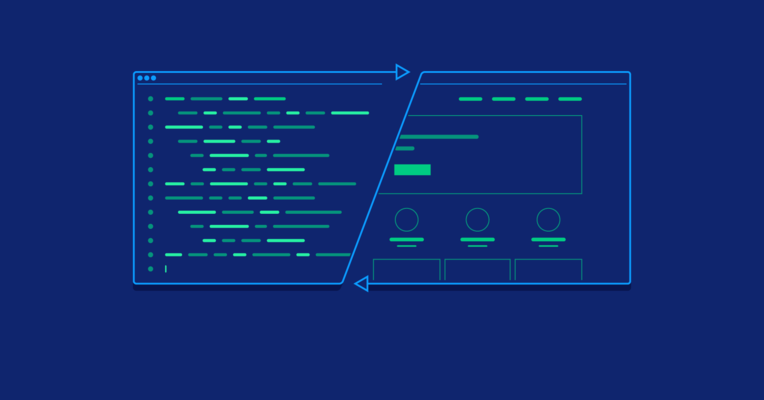Demand for Visual Basic Developers Continues to Expand
Hiring managers seeking Visual Basic developers often face unexpected competition—and that’s only once they determine which version of Visual Basic their project requires. The term “Visual Basic” can refer to several distinct technologies: the classic IDE (VB6), which Microsoft officially stopped supporting in 2008; a scripting language embedded in Microsoft Office and used for macros and automation (Visual Basic for Applications, or VBA); an object-oriented .NET language still used in enterprise development (VB.NET); or a deprecated, lightweight scripting language once common in legacy ASP and Windows environments (VBScript).
VB.NET and VBA ranked among the top 25 programming languages used by professionals in 2025, not far behind modern offerings like Swift, Dart, and Ruby. The push to migrate key ERP and financial systems away from deprecated VB versions (VBScript and the VB6 runtime continue to work with Windows 11) for security and support reasons fuels demand for those who understand the nuances of Visual Basic code. Indeed, the word “basic” in its name can be misleading in an enterprise context.
The Visual Basic landscape can be just as complex to navigate as today’s front-end web development market, so finding high-quality candidates with the right depth of experience in the right type of VB can easily bottleneck an enterprise team. This guide offers hiring managers a roadmap for identifying, attracting, vetting, and hiring Visual Basic developers to help meet their business needs.
What Attributes Distinguish Quality Visual Basic Developers From Others?
Direct experience in Visual Basic is essential for the role. Even software engineers with legacy migration experience can struggle with the language’s behavioral quirks, such as its unusual default to evaluate both sides of a logical expression (i.e., no short-circuiting). Yet a quality Visual Basic developer’s skills go beyond syntactic familiarity, offering the ability to deliver maintainable, business-ready solutions from a language family whose beginner-friendliness often leads to messy or poorly structured code.
Whether working in VB.NET, VBA, or legacy Visual Basic 6 or VBScript, a developer’s value is bolstered by fluency with the Microsoft ecosystem, an understanding of client-server architecture, and experience with older APIs, forms-based applications, and SQL Server integration. However, the specifics vary considerably depending on which version of Visual Basic they specialize in.
VB.NET Developers: Quality candidates will have mastered the .NET Framework and its class libraries, including ADO.NET for data access, Windows Forms for desktop RAD, and ASP.NET for web applications. Developers who are proficient with web service APIs (e.g., GraphQL, REST, or legacy SOAP) show they can integrate legacy codebases into modern infrastructures.
VBA Coders: Corporations use VBA extensively to automate tasks within Excel, Access, and Outlook. A seasoned developer can handle streamlining reports, automating reconciliation processes, or building user interfaces for non-technical users. Quality VBA programmers will be familiar with business logic and have a high level of user empathy.
Classic Visual Basic Programmers: Quality candidates have years of experience writing code, debugging it, and optimizing it for performance and maintainability. They will often also have implemented database-driven functionality using SQL Server or Oracle. They know how to write modular functions, structure projects logically, and avoid tight coupling, but they also know how to interpret code written without such best practices.
VBScript Specialists: Deep familiarity with Windows scripting environments and a clear understanding of when and how to upgrade legacy VBScript systems sets apart a quality VBScript developer. They’ll know the typical design and functionality of VBScript code in the context of enterprise workflows (e.g., login scripts, system maintenance tasks, legacy classic-ASP web applications), Windows Script Host (WSH, formerly Windows Scripting Host) projects, COM automation, and registry manipulation.
Strong problem-solving skills are essential for Visual Basic developers, especially for those working in VB6 or VBScript, where navigating undocumented codebases and decoding the intent behind decades-old logic is a regular part of the job.
How Can You Identify the Ideal Visual Basic Developer for You?
To identify your ideal Visual Basic developer, first clarify the specifics of your VB deployment (which type and from which era), along with the project’s scope and additional essential technologies. Visual Basic programmers are often valuable for guiding organizations through digital transformation, bridging the gap between legacy systems and newer infrastructures. Whether the migration path is from VB6 to VB.NET or to some other language (like PHP or Python), a candidate must possess skill sets in both the source and target platforms and ecosystems. They must understand the legacy system well to maintain functional parity and be well-versed in best practices for its replacement to avoid incurring new technical debt.
On the other hand, if you’re looking for someone to create or maintain VB.NET or VBA code in a modern context, your task is simpler: The level of seniority you need depends on whether you have someone in-house with extensive experience and availability for mentorship—or need such a person to upskill your development team. Regardless, documenting your technical and business needs and using those to map out a skill set as fully as possible will go a long way toward finding your best match.
For simple Excel automation or quick scripts, a junior freelancer with one to two years of experience may suffice, whether their experience is in VBA or even limited to something closely related like LibreOffice Basic on Linux. For a full-scale refactor of a VB.NET desktop application with API integrations, SQL Server dependencies, and ASP.NET components, you’ll need someone with more extensive experience that includes full-stack development; mid-level Visual Basic developers can strike a balance between price and competency. For more specialized work, like developing cross-platform VB.NET libraries that C# Xamarin code can reference in iOS or Android apps, consider a senior developer and pay close attention to matching the details of their experience.
Don’t underestimate the depth of technical skills required in VB.NET and adjacent areas. Vet candidates based on their fluency with VB.NET’s type system, error handling, and form validation, as well as their understanding of how to write modular, reusable components. Also, if the role touches front-end development or web applications, test their skills with HTML, CSS, and JavaScript.
How to Write a Visual Basic Developer Job Description for Your Project
When writing a Visual Basic developer job description, the most important concern is specifying the correct type of Visual Basic involved and its context. For hybrid or migration roles, you can save time by starting with a template for the other technology the role uses (e.g., AWS, Node.js, or React.js) and highlighting the role’s VB aspect in the title and first line. Specifying freelance, part-time, or full-time upfront is a helpful additional filter.
Next, state the project scope (e.g., app development, automation, or mobile support) and clarify the scale, such as how many people are affected by the codebase and how frequently. Be specific about deliverables and timelines. Include the relevance of any technology your team members rely on (like Visual Studio, SQL Server, Azure) and how the new software developer can expect to work with project managers and colleagues on a daily basis.
What Are the Most Important Visual Basic Developer Interview Questions?
Because “Visual Basic” can refer to several different technologies, it’s essential to ask questions that align with the specific VB type required for the role. Also include questions about any other essential technologies, such as mobile app development or MySQL, as long as they match the specifics of your project. The following questions will help you assess core Visual Basic expertise and relevant adjacent skills.
What must you consider when developing SQL Server queries in a VB.NET application?
Quality candidates will highlight the necessity of using parameterized queries to prevent SQL injection attacks and even crashes with legitimate user input. They’ll be able to describe setting up such queries using SqlDataSource controls or SqlCommand objects. Mentioning stored procedures for encapsulating business logic is a good sign, as is remarking on transaction handling when asked about multi-step operations. It’s a major red flag if they describe building SQL queries by concatenating unsanitized strings.
How do you debug and maintain large VBA codebases embedded in Excel?
Any VBA developer should be familiar with tools like watch expressions and step-through debugging, but the best candidates will also describe refactoring shared logic into modules and following naming conventions to avoid tangled references. Their answers may even go a step further, mentioning how excessive use of the Shell function or slow performance on large datasets indicates that the current implementation may have outgrown VBA’s capabilities.
What are the main technical challenges of migrating from VB6 to .NET?
Between VB6 and .NET, major paradigm shifts occurred in UI and database access frameworks. UI controls like MSFlexGrid or custom OCXs rarely migrate cleanly, leading to significant API differences and COM interoperability headaches. Legacy DAO or ADO database access needs replacing with ADO.NET, where convenience objects like classic ADO’s Recordset are split into separate components for reading and writing, requiring more explicit logic.
When is it appropriate to maintain legacy VBScript automation, and when should you migrate it?
VBScript, once a staple for automation and login scripts in Windows environments, is now formally deprecated in Windows 11 and unsupported in modern browsers. Candidates may acknowledge that some teams tolerate its continued use if limited to tightly controlled, air-gapped systems or legacy Group Policy Objects (GPOs) on older Windows Server versions. At the same time, candidates should be able to articulate the pros and cons of migrating to PowerShell, a modern scripting language built for Windows automation and system administration.
Why Do Companies Hire Visual Basic Developers?
Businesses hire Visual Basic developers to support legacy enterprise code or manage its migration (particularly from VB6 and VBScript). They also bring value by making quality-of-life improvements for Office users through VBA, and by building modern applications in VB.NET. Developers well-versed in VB nuances help organizations maintain essential systems, reduce the risks associated with deprecated technologies, and add value to new products.
This guide’s advice on understanding and vetting candidates will help you hire Visual Basic developers with the right experience and technical skills to keep your business operations running smoothly. Whether maintaining critical infrastructure or enabling long-term modernization efforts, an experienced VB developer can play a pivotal role in ensuring continuity across your legacy and modern systems.



























